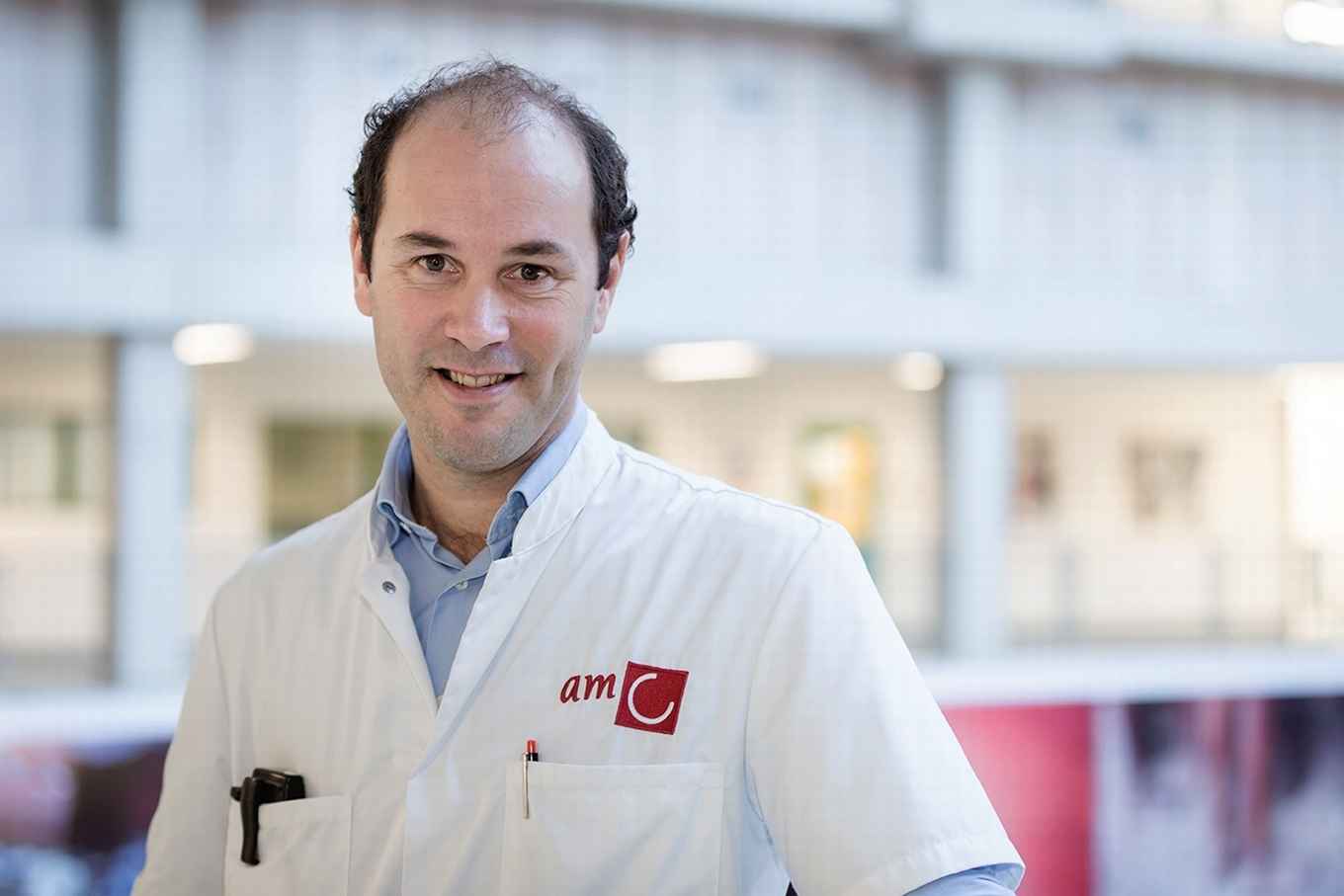Joppe Hovius, professor of Internal Medicine
21 juni 2017

In vector-bone infectious diseases the infection takes place through the bite of infected arthropods, such as insects or ticks. The most significant vector-borne disease in the Netherlands is Lyme borreliosis (also known as Lyme disease), caused by the bite of a tick infected with the Borrelia bacteria. In his research, Joppe Hovius concentrates mainly on the immune response to the pathogens of vector-borne diseases, and in particular the response to the Borrelia bacteria and to the tick itself. The number of people afflicted by Lyme borreliosis is increasing in many parts over the world, and in the Netherlands too. Consequently, research in this field is high on the agenda.
A vaccine and better diagnostics
Hovius is investigating the molecular mechanisms behind the immune suppression triggered by tick saliva and how these influence transmission of the Borrelia bacteria from ticks to humans, as well as the clinical course of Lyme borreliosis. This research not only provides new insights into the human immune system and the nature of Lyme borreliosis, but also contributes to the development of a vaccine against ticks. Such a vaccine could provide protection against several tick-borne diseases. In addition, Hovius is researching ways of improving the diagnostic tests for tick-borne diseases, including Lyme borreliosis.
Sharing knowledge in education and practice
Recognising Lyme borreliosis can be difficult in practice. Hovius is working to increase medical knowledge of this disease, as well as other vector-borne diseases, among students, trainee doctors and healthcare providers. To give one example, he was involved in a national e-learning programme on Lyme borreliosis that was supplied free of charge to all family doctors in the Netherlands. Moreover, he provides teaching in the field of infectious diseases to students in the Bachelor’s and Master’s programmes for Medicine and Biomedical Sciences at the UvA. He also brings students into contact with scientific research and introduces them to the laboratory at the Center for Experimental and Molecular Medicine (CEMM) at the AMC.
Patient care
Hovius is the founder of the Amsterdam Multidisciplinary Lyme borreliosis Center at the AMC, an expertise centre recognised by the Ministry of Health, Welfare and Sport (see: www.amc.nl/AMLC). Amongst other activities, this centre provides patient-oriented, high-quality care to patients suspected of having Lyme borreliosis or other tick-borne diseases. He has also been involved in the creation of the Netherlands Lyme borreliosis Expertise Centre, in which various Dutch partners – including the patients’ association – work together to improve care for patients with Lyme borreliosis in the Netherlands.
About Joppe Hovius
Hovius is an internist, infectious disease specialist and member of staff at the Department of Internal Medicine at the AMC and at CEMM, where he is AMC Principal Investigator for ticks and tick-borne diseases. He is the scientific coordinator of the European research project ANTIDotE (see: www.antidote-fp7.org) and head researcher of several research projects funded by the Netherlands Organisation for Health Research & Development (ZonMw), including the LymeProspect, Pandora and Victory studies (see: www.tekenradar.nl). Hovius is the author of various articles in established scientific journals such as Immunity, The Lancet, CELL Host & Microbe and Nature Communications, and he is a member of various national and international working groups and committees in the field of tick-borne diseases.
Hovius will be holding his inaugural lecture on Friday, 20 October 2017. This will be a double lecture held together with Joost Wiersinga, who has been appointed professor of Internal Medicine, with a focus on translational infectious diseases.